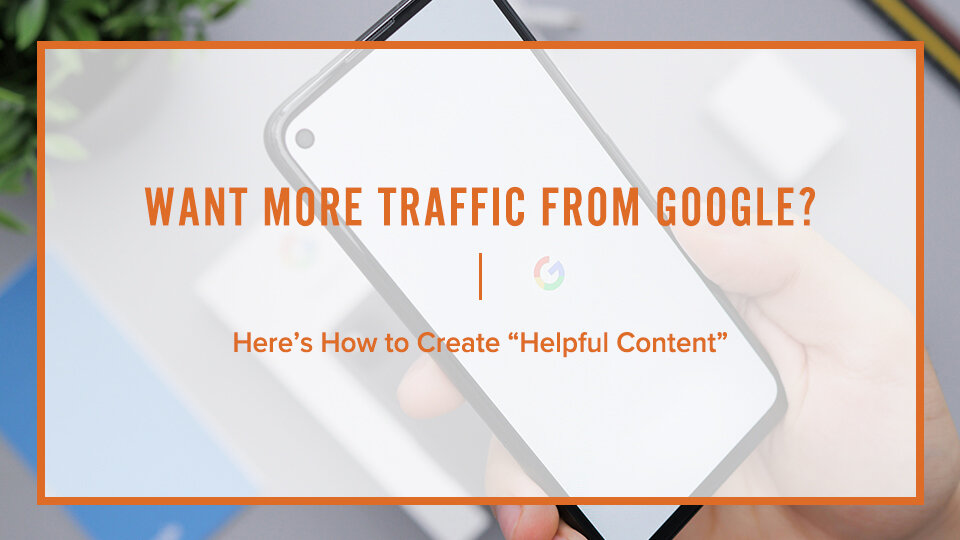Want More Traffic from Google? Here’s How to Create “Helpful Content"
By Maurilio Amorim
I recently heard from clients and friends that some of their pages, which used to get a lot of organic traffic from Google searches, are suddenly not getting any. It's frustrating, right? On the flip side, I spoke with a client whose site is experiencing a surge in traffic. So, what changed? To answer that, we must understand how Google defines "helpful content."
Ever wonder how Google decides what's "helpful content" and what isn't? Understanding this process is crucial if you're trying to get your website noticed. Recently, a study analyzed 260,000 search results to determine what makes content rank higher.
Let's break down some of the critical factors they identified:
E-A-T: Expertise, Authoritativeness, and Trustworthiness
Google prioritizes content that demonstrates thorough expertise, authoritativeness, and trustworthiness, commonly referred to as E-A-T. But what does this mean?
- Expertise: Your content should be created by someone who knows the topic inside and out. This could be shown through the credentials of the author or detailed, accurate information.
- Authoritativeness: Your website and content should be recognized as a go-to source for information. This could mean linking other reputable sites to your content or being cited as a reference.
- Trustworthiness: Your site should be reliable. This includes having clear contact information, secure transactions, and transparent business practices.
Semantic SEO: Using Related Topics and Keywords
Using related topics and keywords is crucial, a concept known as semantic SEO. Instead of just focusing on a single keyword, you should incorporate a range of associated terms and phrases that naturally fit into the context of your content. This helps Google understand the overall theme and relevance of your page.
For example, if you're writing about "healthy eating," you might also include related terms like "balanced diet," "nutrition," and "superfoods." This approach ensures your content is comprehensive and relevant to the topic.
Faster Load Times and Smaller HTML Sizes
Faster load times and smaller HTML sizes positively impact rankings. A fast website provides a better user experience and signals to Google that your site is well-maintained and efficient.
- Load Time: This is how quickly your website loads. Faster websites keep users happy and reduce bounce rates (when people leave your site quickly).
- HTML Size: This refers to the amount of code used to build your webpage. Smaller, cleaner code can help your site load faster.
Comprehensive Content for User Intent
Content that's well-optimized for user intent ranks better. This means understanding what the user is looking for when they search for a particular term and providing comprehensive answers.
- User Intent: This is the purpose behind a user's search. Are they looking for information, trying to make a purchase, or seeking a specific website? Tailoring your content to match this intent can improve your rankings.
- Comprehensive Content: Users expect detailed guides and thorough explanations for informational searches (like "how to fix a bike"). Users want clear product information and comparisons for buyer intent searches (like "buy mountain bike").
Domain Authority
Domain authority is a significant ranking factor. This refers to how much trust and authority your entire website has built over time.
- Domain Authority: This score predicts how well your site will rank on search engines. Factors include the age of your domain, the quality of your backlinks (links from other sites to yours), and overall content quality.
Putting It All Together
To create content that Google considers "helpful," focus on demonstrating E-A-T, using semantic SEO, ensuring fast load times, creating comprehensive content tailored to user intent, and building your domain authority. By understanding and implementing these key factors, you can improve your chances of ranking higher in search results and reaching a wider audience.
Remember, it's not just about getting traffic to your site—it's about providing real value to your visitors. When you focus on quality and relevance, everyone wins.














